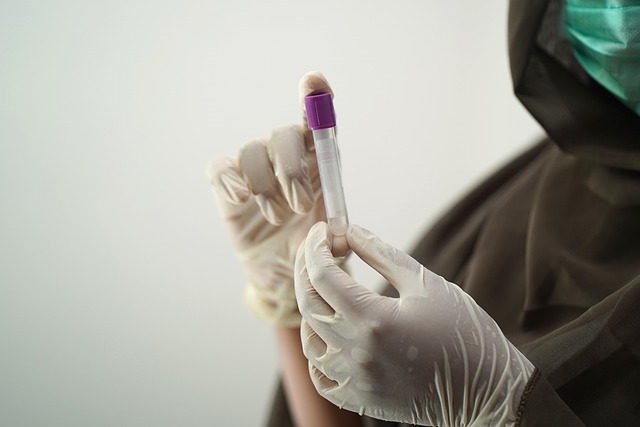The article highlights iron deficiency anemia as a prevalent issue in the UK, affecting oxygen transport and influencing cognitive function, immune response, and energy metabolism. Key risk factors include dietary insufficiencies and heightened iron requirements, particularly affecting menstruating women and vegetarians. Early detection via the Testosterone Blood Test UK is advocated due to its dual utility in assessing both iron deficiency's impact on testosterone levels and as a preliminary indicator of overall iron status. This test is especially relevant for men, whose testosterone production depends on adequate iron stores. The article suggests integrating this test into the UK's healthcare system to improve early diagnosis and treatment across genders and age groups, underscoring the need for comprehensive health monitoring.
The Testosterone Blood Test UK serves as a valuable dual-purpose diagnostic tool within the NHS, identifying both hormonal and iron-related health concerns. It is particularly useful for those with anemia symptoms or risk factors like vegetarians or those with gastrointestinal issues. Clinicians can utilize the test to develop targeted treatment plans that address both iron deficiency and low testosterone levels, enhancing patient care and quality of life. The NHS facilitates this non-invasive procedure, which is conducted in a healthcare provider's office and provides lab analysis for haemoglobin, ferritin, and other indicators to guide personalized treatment approaches. Timely diagnosis through the NHS's efficient laboratory system is essential for effective anemia management and overall health optimization.
Iron deficiency anemia is a prevalent health issue affecting many individuals in the UK, with its detection and management crucial for maintaining overall well-being. This article sheds light on the significance of blood tests, particularly testosterone blood tests, in accurately identifying this condition. We will explore the implications of iron deficiency anemia within the UK’s population, delve into the role of testosterone blood testing as a diagnostic tool, and provide guidance on navigating the blood test procedures for effective diagnosis. Understanding these aspects is key to early intervention and better health outcomes in combating iron deficiency anemia across the nation.
- Understanding Iron Deficiency Anemia and its Implications for Health in the UK
- The Role of Testosterone Blood Tests in Detecting Iron Deficiency Anemia
- Navigating Blood Test Procedures for Iron Deficiency Anemia Diagnosis in the UK
Understanding Iron Deficiency Anemia and its Implications for Health in the UK

Iron deficiency anemia is a prevalent health condition characterized by an insufficient level of iron in the body, leading to a deficit in hemoglobin, the protein in red blood cells responsible for carrying oxygen throughout the body. This condition can manifest due to various factors including dietary insufficiencies, increased iron requirements, or chronic diseases that affect iron absorption. In the UK, where dietary patterns and health conditions may predispose individuals to lower iron levels, understanding and detecting iron deficiency anemia is crucial for maintaining overall health and well-being. The implications of this condition are significant as iron is not only vital for red blood cell production but also plays a role in cognitive function, immune response, and the regulation of enzymes involved in energy metabolism. Additionally, iron deficiency can impact men and women differently, with menstruating women and vegetarians being at a higher risk.
The detection of iron deficiency anemia is typically achieved through blood tests, which measure the levels of iron, ferritin, and transferrin saturation. Among these, the testosterone blood test emerges as an important diagnostic tool, not only for its ability to assess testosterone levels, which can be affected by iron deficiency, but also for its potential to indirectly indicate iron status. In men, testosterone production is highly dependent on adequate iron stores. Therefore, a testosterone blood test in the UK can serve as an initial screening method to identify individuals who may be at risk of iron deficiency anemia, prompting further investigation with additional iron-specific tests. This approach not only aids in the early diagnosis of iron deficiency but also ensures that men’s health is considered alongside the broader implications for women and children, highlighting the importance of comprehensive screening strategies within the UK’s healthcare system.
The Role of Testosterone Blood Tests in Detecting Iron Deficiency Anemia

In the context of iron deficiency anemia detection, testosterone blood tests can serve a dual purpose in clinical settings, particularly within the UK. While primarily associated with assessing hormonal health, especially in men, these tests can also provide indirect insights into iron status. This is because low testosterone levels are often correlated with iron deficiency anemia, as both conditions can stem from similar underlying causes, such as chronic disease or poor diet. In the UK, where the National Health Service (NHS) provides comprehensive healthcare, including blood tests, these overlapping indicators allow for a more holistic approach to patient health management. A testosterone blood test in the UK is a simple, quick procedure that can be conducted alongside iron-specific tests to provide a broader clinical picture. This can be particularly beneficial for individuals with symptoms suggestive of anemia or those at risk of iron deficiency, such as vegetarians or individuals with gastrointestinal disorders. By considering both testosterone and iron levels, healthcare providers can tailor treatment plans more effectively, ensuring that any underlying iron deficiency is addressed while also managing hormonal imbalances, thereby improving overall well-being and quality of life for patients in the UK.
Navigating Blood Test Procedures for Iron Deficiency Anemia Diagnosis in the UK

In the UK, the detection of iron deficiency anemia often begins with a blood test, a fundamental diagnostic tool that provides a clear picture of one’s iron levels and overall health status. The process commences with a healthcare professional taking a sample of blood from a vein, usually in the arm, which is then sent to a laboratory for analysis. This procedure is not only crucial for identifying iron deficiency but also offers insights into testosterone levels via a Testosterone Blood Test UK, which can be impacted by similar factors such as poor diet or underlying health conditions. The blood test measures haemoglobin, ferritin, and other relevant markers to ascertain if an individual is suffering from iron deficiency anemia. It’s a straightforward yet comprehensive method that helps in tailoring treatment plans to meet the specific needs of patients. Additionally, the National Health Service (NHS) provides accessible and reliable blood testing services across the UK, ensuring that individuals can receive timely and accurate diagnoses, paving the way for effective management and treatment.
For those undergoing a blood test for iron deficiency anemia in the UK, it is important to follow the guidance provided by healthcare professionals. The process itself is quick and relatively painless, with immediate results often available for certain markers. The NHS laboratories are equipped to handle a high volume of tests, ensuring accuracy and efficiency in diagnosis. A proper diagnosis through a blood test is essential for initiating appropriate treatment, which may range from dietary changes to iron supplements. Understanding one’s iron status is pivotal not only for managing anemia but also for optimizing overall health, including maintaining balanced testosterone levels as assessed by a Testosterone Blood Test UK.
In conclusion, iron deficiency anemia remains a prevalent health issue within the UK, with significant implications for individuals’ well-being and quality of life. The medical community has emphasised the importance of early detection through accurate blood tests, including testosterone blood tests, which play a pivotal role in diagnosing this condition, particularly in men and postmenopausal women where testosterone levels are relevant. Navigating the diagnostic process can be streamlined with accessible and informative guidelines on blood test procedures within the UK. By recognising the signs and utilising these tests, healthcare providers can effectively manage iron deficiency anemia, thereby improving health outcomes for patients nationwide.
